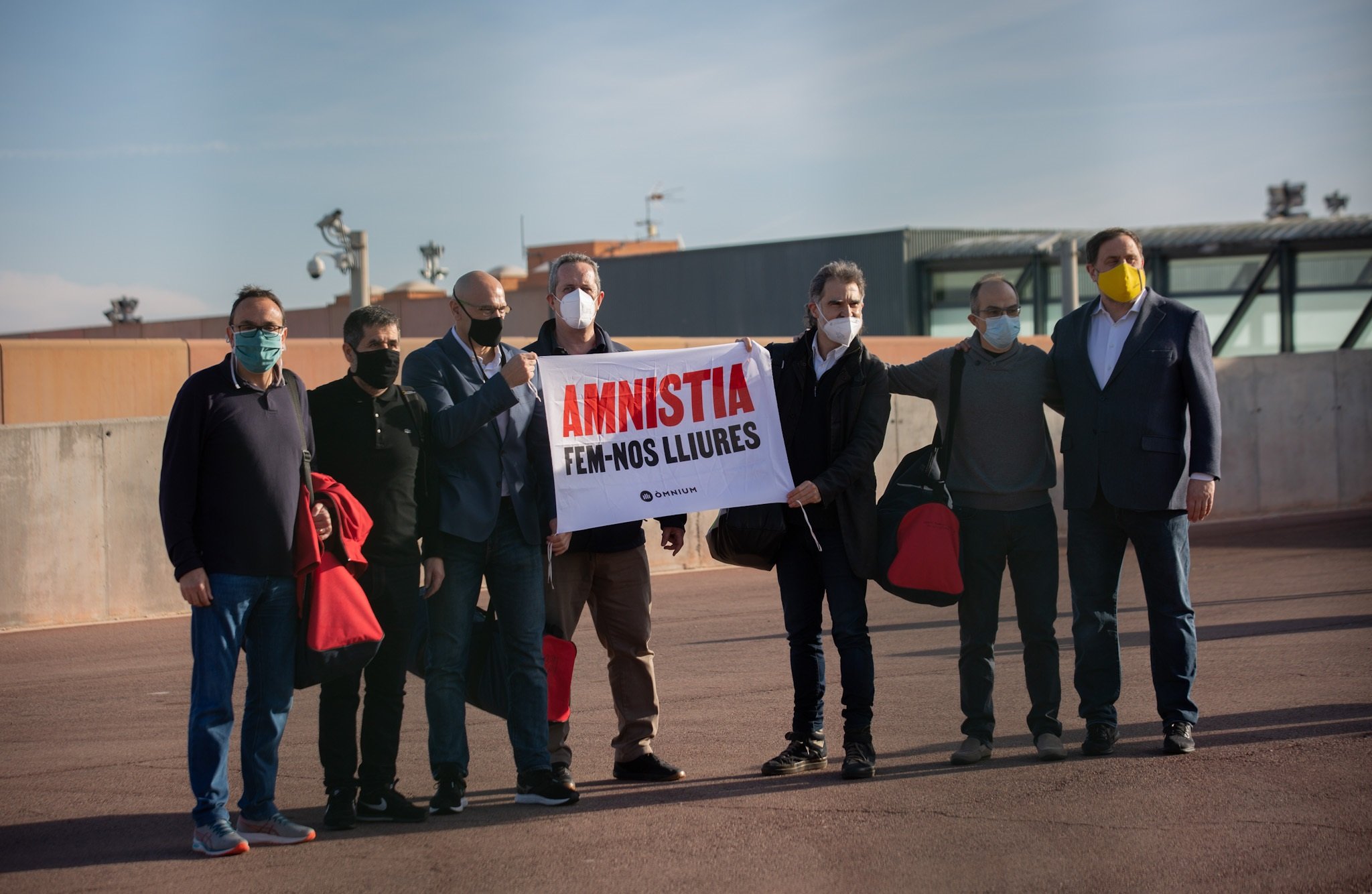Spanish public prosecutors are persisting in their attempts to return the Catalan political prisoners to a standard lock-up prison regime. This Tuesday, the prosecution service presented another appeal to the Supreme Court against the rulings of Catalan penitentiary surveillance court number 5, which decided to maintain the open Level 3 prison regime of the seven pro-independence leaders who are in Lledoners jail. This affects Oriol Junqueras, Raül Romeva, Jordi Cuixart, Jordi Sànchez, Jordi Turull, Josep Rull and Quim Forn.
The prosecution had already appealed the prisoners' Level 3 prison leave rights and had argued that as an interim measure their leave should be suspended, but the court rejected this while it continues to study the substance of the case. Hence the new appeal, which is identical to the submission which was also filed yesterday for the other two jailed Catalan leaders, Dolors Bassa and Carme Forcadell.
Prosecutors' arguments
The prisons judge had argued a case on formal grounds, asserting that it was procedurally inappropriate to impose an interim measure which would return the convicted leaders to a tight prison regime while the merits of the appeal were awaiting resolution. However, the prosecution has given a come back, affirming that there are precedents: last July, the same court took a stand and maintained the prisoners behind bars until the Level 3 appeal was resolved in December. In all the cases involved, prosecutors believe that, despite the new Level 3 rights the political prisoners were granted in January, their situation had not changed to justify the new decision. And that, therefore, the prisoners must continue in a closed Level 2 regime. As always, they reiterate that the prisoners are convicted of "serious offences with sentences of more than 5 years."
Since the first appeal was made, two weeks ago, the prosecutors have criticized the Catalan justice department's measure, asserting that it was improper for all the prisoners to be returned to Level 3 at the same time a few weeks after the Supreme Court had overturned that regime in December. According to the prosecution service, the open regime is "incompatible" with fulfilling the purpose of the sentence, especially the objectives of "re-education and resocialization." It also considers that there is a "lack of modification of those personality traits directly related to criminal activity," as the pro-independence inmates "continue to believe that the actions for which they were convicted were not criminal." The submission reiterated, as had been stated in previous appeals, that there was "insufficient progress in treatment" for the politicians and activists - as, in fact, they had not been given a specific "treatment programme" to cure them of their seditious tendencies.
At the end of January, a Catalan justice ministry board approved the Level 3 regime again for all nine political prisoners, after receiving favourable reports on the convicted leaders from the prisons' treatment boards. The prosecution had already asserted its opposition to the measures, but it waited to file an appeal until the day after the election, two weeks later. Now, while awaiting a decision on the substantive issue, the inmates can leave the jail daily, and only have to return to sleep in their cells from Monday to Thursday.
First reactions
Imprisoned former Catalan minister Jordi Turull sees the new appeal as "dialogue by hitting people with a stick". Through his Twitter account, Turull noted that this was the formula used by the so-called "full democracy" of Spain, adding that he was more convinced and committed than ever to the goal of independence "so that no-one doubts that fact, either here or there." The prosecutors have decided to appeal directly to the prisoners' sentencing court - which is also the ultimate appeal court in Spain - the Supreme Court. They did the same thing yesterday in the case of Carme Forcadell and Dolors Bassa.

